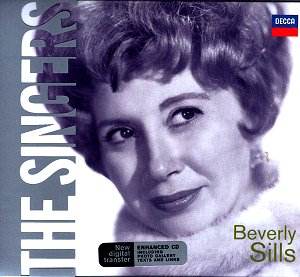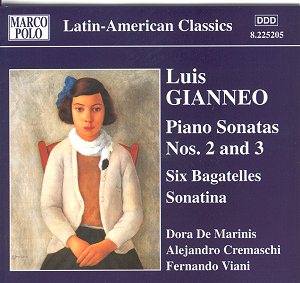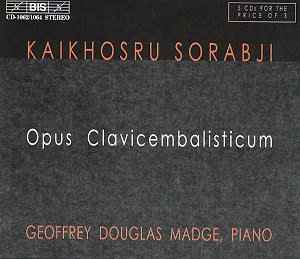 Composer: Decca
Composer: Decca
Works: Singers: Sills, Sutherland, Pavarotti, Tebaldi, Price, Berganza, Ghiaurov
Performers: Various soloists
Recording: Digital re-masterings from original tapes, various locations and dates between 1949 and 1982
Label: DECCA
Decca’s “The Singers” series stands as a monumental tribute not only to the individual talents of its featured artists but also to the storied legacy of operatic recording. This collection showcases a stellar array of vocalists, each an icon in their own right, from Beverly Sills and Joan Sutherland to Luciano Pavarotti and Renata Tebaldi. The historical significance of these recordings cannot be overstated; they capture performances that defined the operatic landscape of their respective eras, making this compilation essential for both collectors and new listeners.
Beverly Sills opens the series with a powerful interpretation of Mozart’s “Martern aller Arten,” where her vibrant timbre is somewhat compromised by the brisk tempo set by the orchestra. While the speed brings a certain crispness, it also detracts from her expressive potential, particularly in the higher registers where clarity falters momentarily. However, Sills compensates with her remarkable middle register, demonstrating a richness that hints at her operatic prowess. The subsequent track, “Vorrei spiegarvi, oh Dio!” is a highlight, with Sills’ ability to deliver high notes softly, creating an ethereal quality that contrasts beautifully with her more robust passages. The choice of repertoire, including selections from Meyerbeer and Thomas, showcases Sills’ versatility; yet, there are moments where her expression seems restrained, particularly in the more dramatic pieces.
Joan Sutherland’s disc, recorded in the late 1950s, stands as a testament to her unparalleled vocal technique and artistic sensitivity. Beginning with the iconic “Regnava nel silenzio,” Sutherland’s voice is a marvel of lyricism and power, yet one wonders why this particular recording was chosen over others that might better highlight her extraordinary capabilities. While her interpretation of Wagner offers an intriguing glimpse into her versatility, it feels less convincing, lacking the nuanced anticipation that characterizes the role of Elsa. The inclusion of lighter fare, such as Rossini’s “L’orgia,” brings out her playful side, with coloratura executed with dazzling precision. Sutherland’s concluding tracks, particularly her renditions of Adam’s “O Holy Night” and Gounod’s “O Divine Redeemer,” are nothing short of divine, encapsulating her ability to convey profound emotion through her singing.
Renata Tebaldi’s selections reveal the rich, sumptuous quality of her voice, particularly in the excerpts from Puccini’s operas. Her “Sì, mi chiamano Mimì” and “O mio babbino caro” resonate with a lyrical depth that speaks to her interpretative skills as a storyteller. While some of the earlier recordings exhibit a hint of background noise, they serve as a testament to the technological challenges of their time and do not significantly detract from her performance. Tebaldi’s ability to balance power with delicacy is particularly evident in Gounod’s “C’era un re,” where her phrasing captures the essence of emotional longing. The contrast with Sutherland is striking, as Tebaldi’s timbre exudes warmth and intimacy, making each note feel personal and heartfelt.
Luciano Pavarotti’s disc offers a masterclass in bel canto singing. From the emotive depths of Gluck’s “Che farò senza Euridice?” to the exuberance of “Ah! mes amis,” Pavarotti’s technical command and interpretative flair shine through. His performance of “Nessun dorma!” is particularly noteworthy; the pacing allows him to explore the emotional nuances of the piece, culminating in a thrilling climax that showcases his vocal power. However, there are moments where his lighter repertoire, such as Tosti’s “Aprile,” feels less engaging, lacking the same intensity that characterizes his operatic roles. Pavarotti’s duets with Sutherland reveal a beautiful synergy, yet they also highlight the differences in their vocal approaches—his lyricism against her sheer power.
Leontyne Price brings a different emotional depth to the collection, particularly in her interpretations of Verdi. While her earlier recordings captured a more immediate urgency, the later selections reveal a richness tempered by experience. Her rendition of “Ritorna vincitor!” illustrates both strength and vulnerability, though some moments lack the immediacy found in her earlier performances. The religious selections demonstrate her ability to convey a sense of calm and reflection, with “Panis angelicus” standing out for its exquisite phrasing and tonal purity.
Teresa Berganza’s contributions maintain a focus on clarity and precision, particularly in her Mozart selections. While her technical skill is evident, there are instances where emotional depth seems absent, particularly in the more dramatic contexts. However, her interpretations of Spanish songs reveal a different facet of her artistry, offering a refreshing contrast that enhances the overall collection. Nicolai Ghiaurov closes the series with a rich tapestry of bass roles, his deep, resonant voice lending gravitas to each selection. From the languid lines of Méphistophélès to the commanding presence of Escamillo, Ghiaurov’s versatility and expressive depth are abundantly clear.
The engineering quality of these re-mastered recordings is commendable, with clarity that allows each singer’s unique qualities to shine through. The attention to detail in both the presentation and the accompanying booklets reflects Decca’s commitment to preserving these historical treasures for contemporary audiences. Each disc stands alone yet contributes to a larger narrative, showcasing the evolution of operatic singing and the artistry of its most celebrated performers.
This collection is not merely a showcase of vocal talent; it is a comprehensive exploration of the operatic canon through the lens of some of its greatest interpreters. It provides a rich listening experience that balances historical significance with artistic excellence, making it an indispensable addition to any classical music library.



